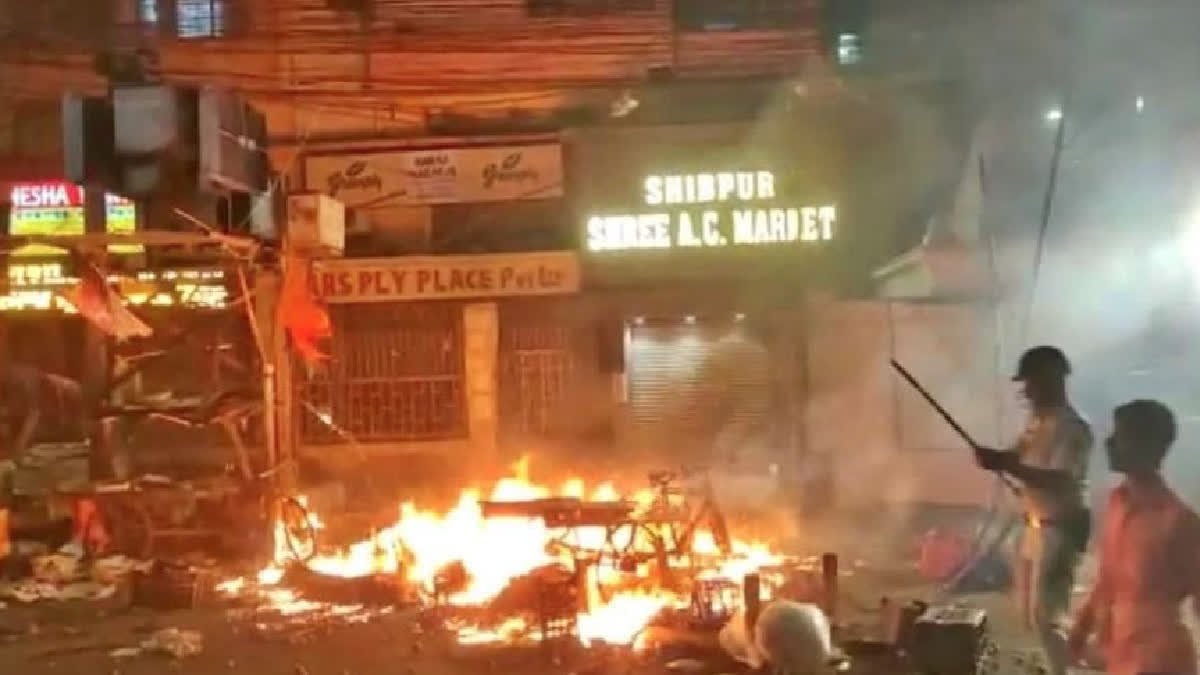New Delhi: The Supreme Court on Monday dismissed a plea by the West Bengal government against the Calcutta High Court order transferring the investigation in six FIRs in connection with Ram Navami violence to the National Investigation Agency (NIA).
A bench headed by Chief Justice of India D Y Chandrachud noted that the central government has exercised suo motu power to direct an NIA probe and that central govt notification was not under challenge by the state government. The bench, also comprising Justice JB Pardiwala, and Justice Manoj Misra, dismissed the plea filed by the West Bengal government challenging the high court order transferring the probe into the cases concerning the Ram Navami violence to the NIA.
The top court noted that there are 6 FIRs by the state police, which were registered between March 30 and the first week of April 2023, and the precise contours of the investigation which should be carried out by NIA cannot be anticipated at this stage. The top court noted that the Centre has issued a notification taking suo motu cognizance of the issue under the NIA Act and 6 FIRs were registered by the NIA.
It said the NIA has exercised its suo motu power under a section of the NIA Act, and thus the court is not called to decide the legality of allegations and their veracity. The top court said against this backdrop and in the absence of a challenge to the central government notification, “We are not entertaining the special leave petition”.
The bench said after the high court’s order, the Centre has exercised its suo motu powers under the NIA Act to ask the NIA to investigate these cases. It also noted that the Centre's subsequent notification has not been challenged by the state government.
Senior advocate Gopal Sankaranarayanan, representing the West Bengal police, submitted that the 6 FIRs were registered in connection with different incidents which took place at different places on different dates in the state. He stressed that there was no evidence of the use of bombs or explosives, therefore the Explosives Act was not invoked and pointed out that smoke grenades and tear gas grenades used by the police to control the mob are being projected as explosives. He pressed that no shrapnel or craters were found, which indicates the use of bombs.
Senior advocate PS Patwalia, representing BJP leader Suvendu Adhikari, contended that bombs and explosives were widely hurled and it was deliberately omitted by the state police in the FIRs.
Also read: NIA files 6 FIRs in West Bengal Ram Navami violence



